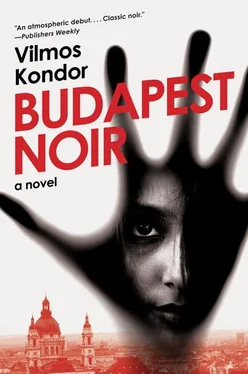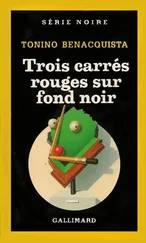“Which was what again, my boy?”
“László Földes-Fiedler was tasked by the National Unity Party to put politicians under surveillance and prepare reports about them. Do you remember who stopped off in Budapest a couple of weeks back for a friendly chitchat? The German minister of foreign affairs, Konstantin von Neurath, and Goebbels. The latter was even received by our own foreign minister. Of course, the visit was purely personal. And not quite two weeks ago our interior minister ordered a ban on public meetings.” Gordon was ratcheting up his temper as he spoke, and he just kept listing examples. “And Hitler’s speech at the end of September? That if Germany had colonies and raw materials, then it could allow itself the luxury of democracy? The luxury of democracy? Opa, democracy is not a luxury.”
“For you, my boy, in America, it wasn’t. But here . . .”
“What was Gömbös up to in Rome all the time? Hunting with Mussolini?”
Mór stretched out his arms. “What are you getting at, my boy?”
“What is the name of this square you live on?”
The old man quietly replied: “Adolf Hitler Square. But Darányi will . . .”
“Darányi will what, Opa? Do you think he can stand firm against the hawks in the National Unity Party? Opa, this country of ours would just as well stand by Stalin, too, if he promised we’d get Transylvania and the northern highlands back after losing them on account of the war. As for the British, why, they’re all talk; it doesn’t cost them a thing to support revisionism. But the Germans? People believe they’ll actually do it.”
“My boy, it doesn’t matter who we side with,” said the old man softly. “Anything is better than the Communist rabble. Anything.”
“Yes?” Gordon looked him in the eye.
“Yes.” He nodded. “You weren’t here in 1919. You didn’t see what happened. Not only in Budapest, but where we’re from, in Keszthely.”
Gordon didn’t reply. Mór’s last sentence floated between them. The old man sighed, stretched, and stood up. “I’ve got apple jam waiting for me,” he said, taking his basket and going into the building.
Gordon hurried to the newsroom, typed his two articles in no time, and put them on Turcsányi’s desk. The wall clock read six-thirty. He didn’t have to hurry. He’d agreed to meet Krisztina for dinner at seven in the Abbázia.
With the trams not running, the city seemed to have entered a state of suspended animation. At the New York Café, the curtains were drawn and noise barely filtered out. On the Grand Boulevard only a bicycle messenger appeared now and again while pedaling feverishly to get a film reel from one cinema to the next.
The waiter in the Abbázia had Gordon sit down at his usual table. Only a few odd people were dawdling about in the coffeehouse. At the occupied tables, the conversations were hushed, and the waiters, having nothing better to do, sat on chairs by the kitchen and read newspapers or did crossword puzzles. Krisztina arrived a couple of minutes past seven. As always, Gordon noted with satisfaction that the men on hand turned their heads to look at her. Neither her outfit nor her expression was provocative, but she had a way of coming through a door that few women could match. Gordon pulled out her chair, and Krisztina nodded at a waiter (who, by now, was standing by the kitchen ready to leap) as she took off her hat and gloves. The lithe young man appeared beside them at once, as if he’d glided over on a film of water.
“A good evening to you, Mr. Editor, and to the fine young lady,” he said. “May I suggest something for tonight?” Gordon nodded. “Well, our veal cutlet is fresh and tender, and the roast beef with fried chopped onions is simply divine. I would recommend butter-braised peas with the veal, and as for the roast beef, a double serving of onions fried to a special crisp, as well as boiled or fried potatoes.” Gordon and Krisztina did not frequent the Abbázia for culinary pleasures. When they really wanted something delicious, they went to the Guinea Fowl, on Bástya Street, whose menu included fish and game broiled over coal ash. The Abbázia was close, pleasant, and comfortable, and their waiter always recommended the most acceptable dish of the day. He brought the menu under his arm only for show. He now took their order, which included coffee and a bottle of red wine.
Gordon quickly told Krisztina the story about Göring’s appearance in the Parliament building and described the steel-helmeted storm troopers; Horthy on his horse; and the black-dressed, murmuring masses.
“Did anything else interesting happen to you today?” she asked after taking a sip of her wine. “Did you talk with Csuli?”
“I did,” said Gordon. “I certainly did.” And he caught her up on what he’d learned from Csuli.
“So the old lech is a Communist,” said Krisztina, staring at her wineglass. “Then you were dealt a good hand.”
“Not just any hand.”
“Don’t tell me you want to track down what happened to that girl?”
“I do.”
Krisztina raised her eyes at Gordon and scrutinized his face. Gordon took out a cigarette and lit it.
“Why?”
“Because no one else is interested in her death.”
“Not even the police?”
“Them least of all.”
“How do you know?”
“It’s been almost six years that I’ve been working with the Evening , practically always with the police. I know when they’re investigating a case and when they’re not. This time they won’t.”
“Why not?”
“Well now, that’s another question. Gellért used the funeral as his excuse for inaction, which might even be true.”
“Might even be true?”
“I don’t know what will happen, Krisztina. This whole thing is suspicious to you, too, not just me. And if what Csuli said is true, and I can find evidence of these elite hookers . . .”
“You want to make the front page?”
“Are you kidding? With this? It could never be published.”
“Then what?”
Gordon crushed out his cigarette as the waiter appeared and quietly set down their dinner. “Do you have some problem with me investigating this?”
“Zsigmond, you’re a crime reporter. Not a detective, not a private eye. What do you know about investigations?”
“Just enough to know where to begin.”
“Where to begin? You’ve been running about for days now with no idea of where you’re going with this. Gellért would get further with his men. Why, even some detective from the provinces would.”
“Are you trying to say I don’t know what I’m doing?”
“What I’m trying to say,” said Krisztina, “is that while you’re used to digging into all sorts of affairs, here you suspect a murder. This is not like figuring out why some bank official shot himself in the head or why some clerk embezzled money from the glazier on the corner. Ask a couple of questions, and you’ve closed the case.”
Gordon took a deep breath, held it in, and exhaled slowly. In lieu of a reply, he pulled his plate in front of him and proceeded to cut his veal with such force that the metal of the knife grated against the porcelain. Krisztina calmly saw to her own veal cutlet and didn’t say another word until they’d finished supper.
“As you see it, I’m not qualified,” said Gordon, putting his fork and knife down on the table.
“That’s not what I said,” replied Krisztina, looking him in the eye. “I just want you to watch out for yourself. If I know you, you won’t sit still until you turn up something, no matter what it is.”
“What could happen to me?”
“That’s just it. There’s no telling what you might get yourself into. Could you just think it over? Do you really need this?”
Читать дальше
Конец ознакомительного отрывка
Купить книгу












